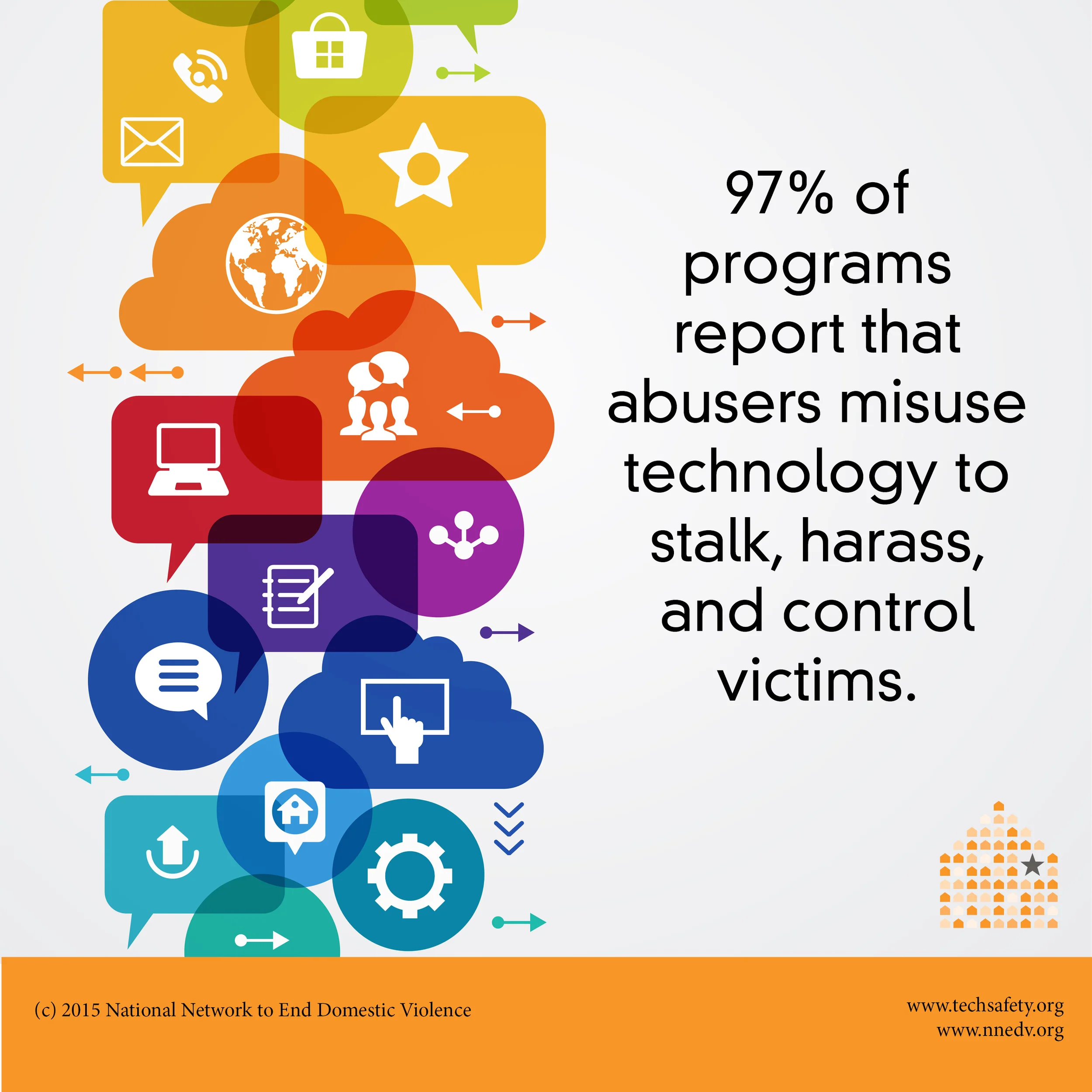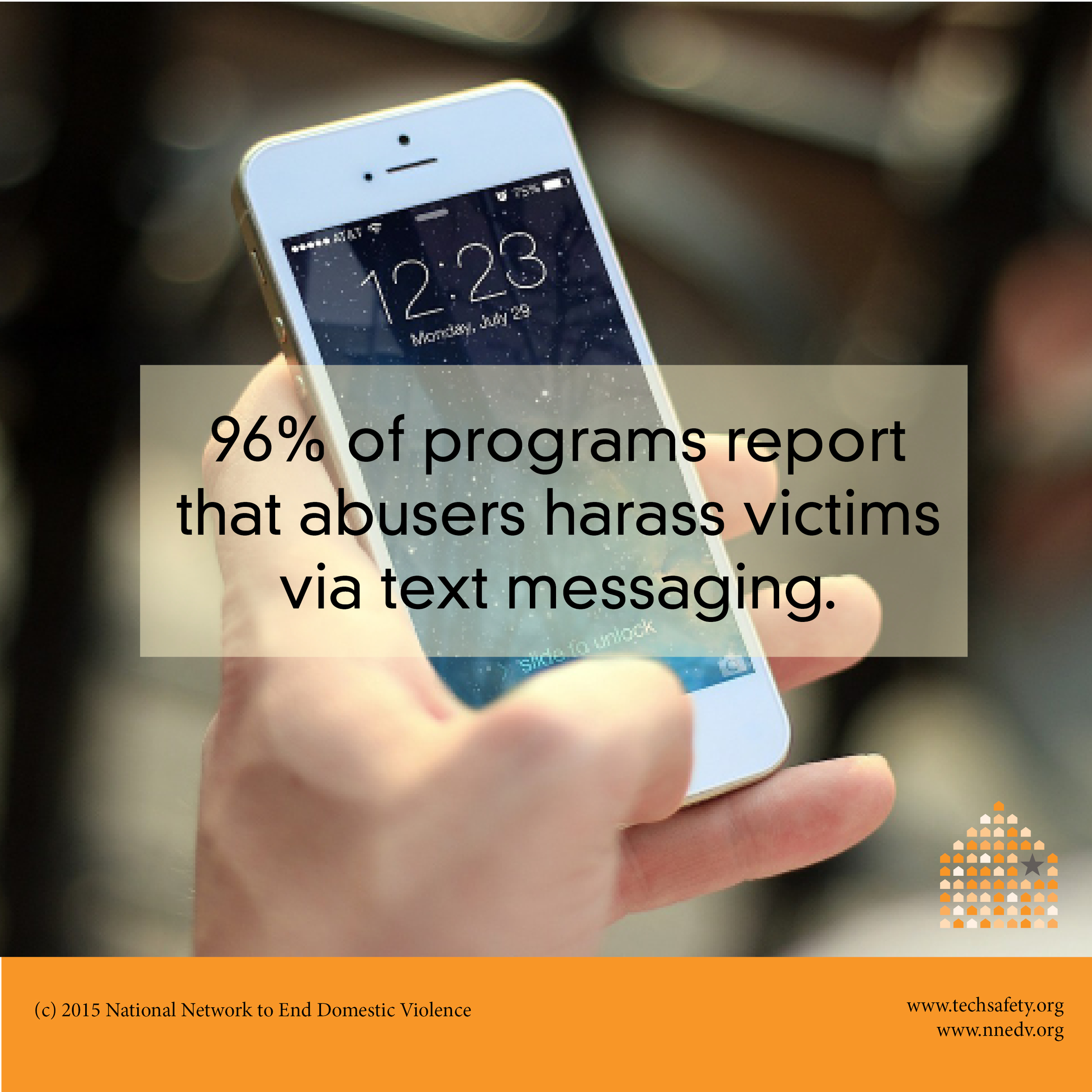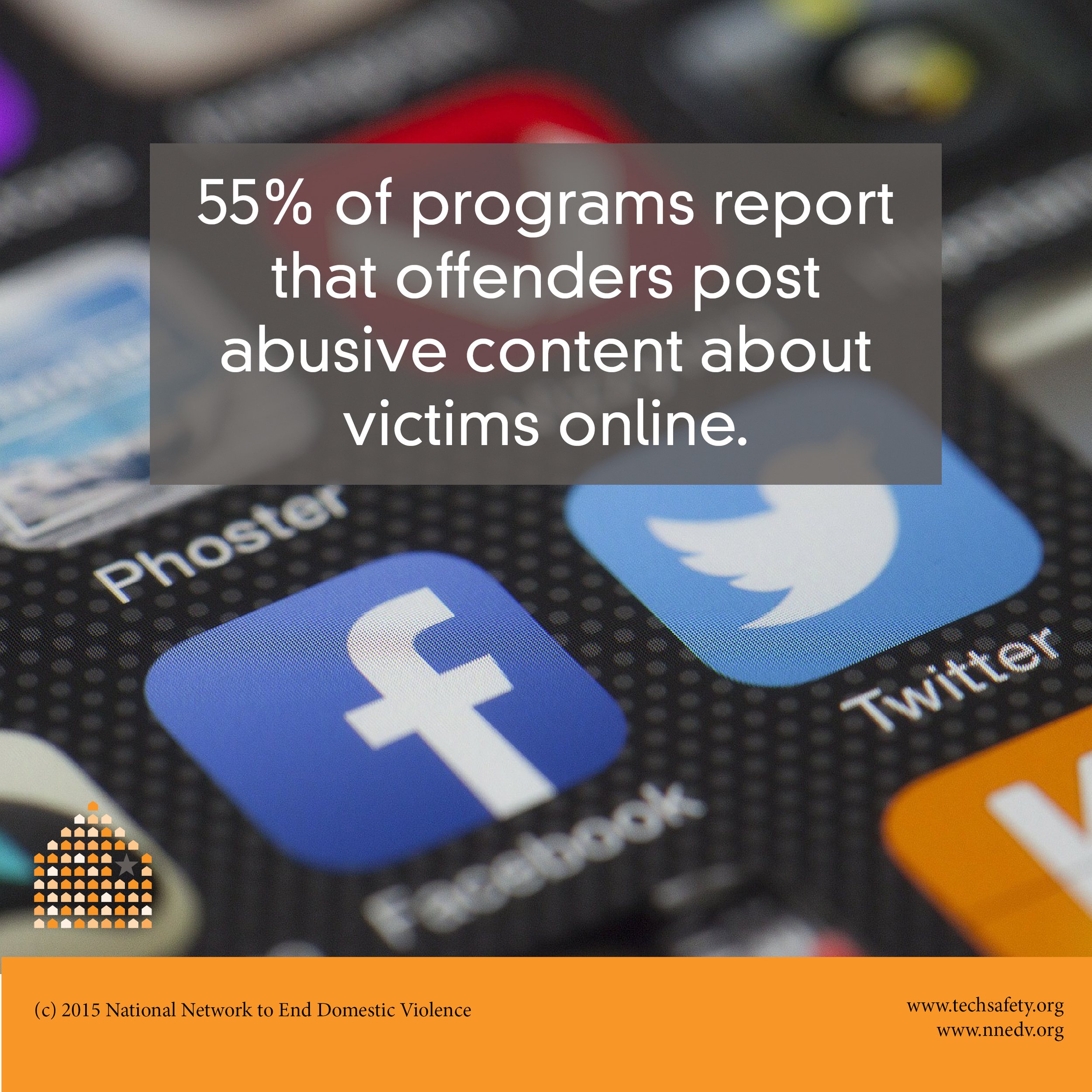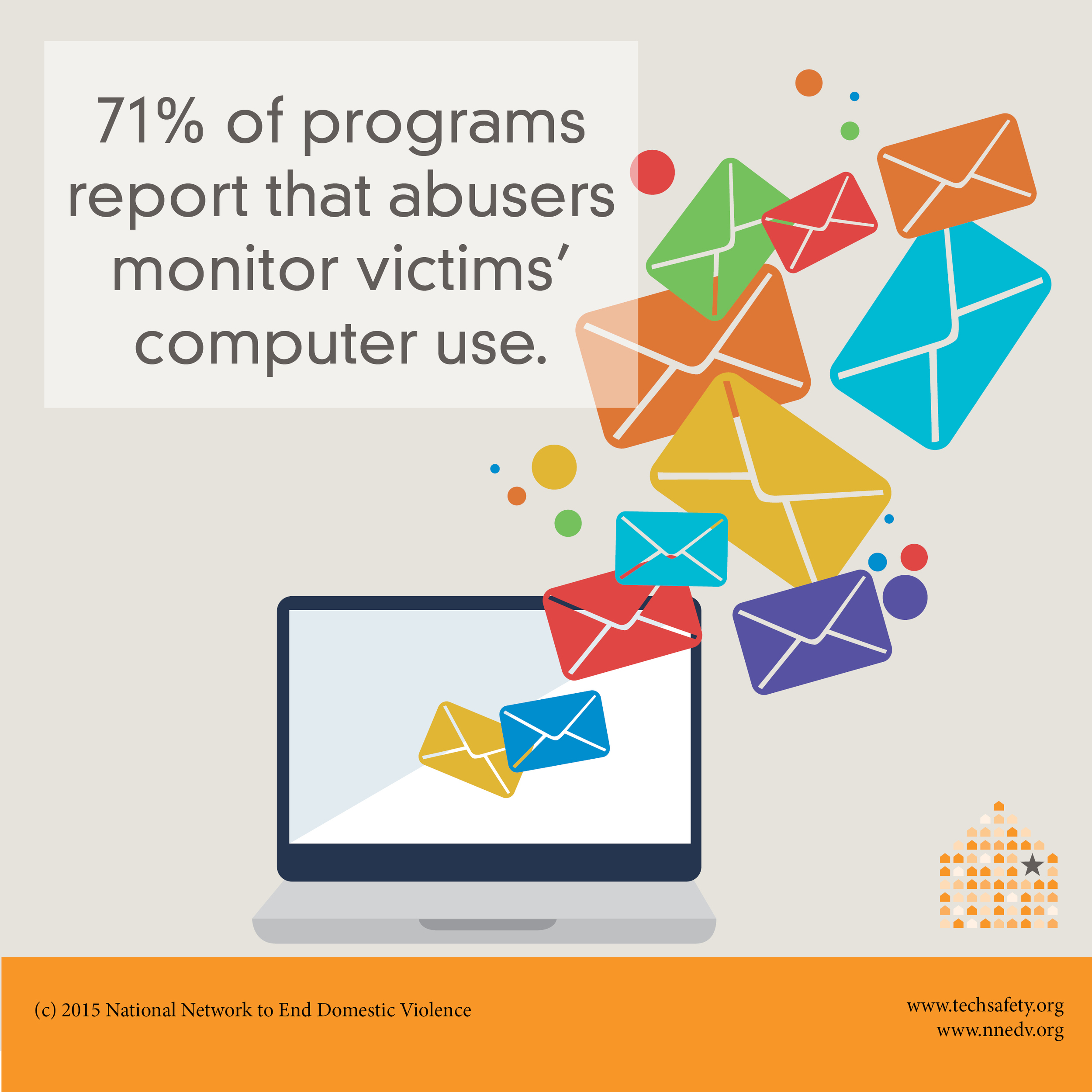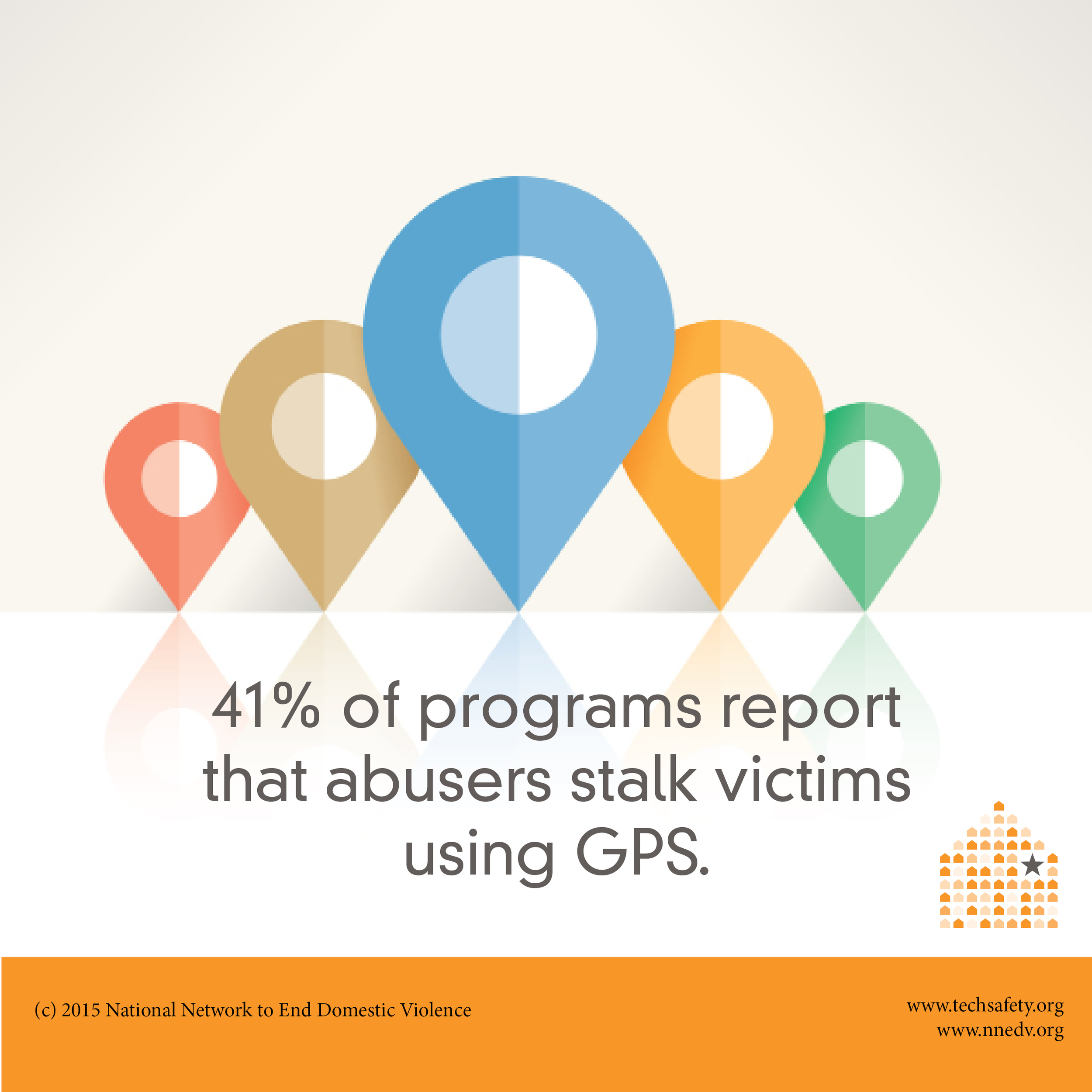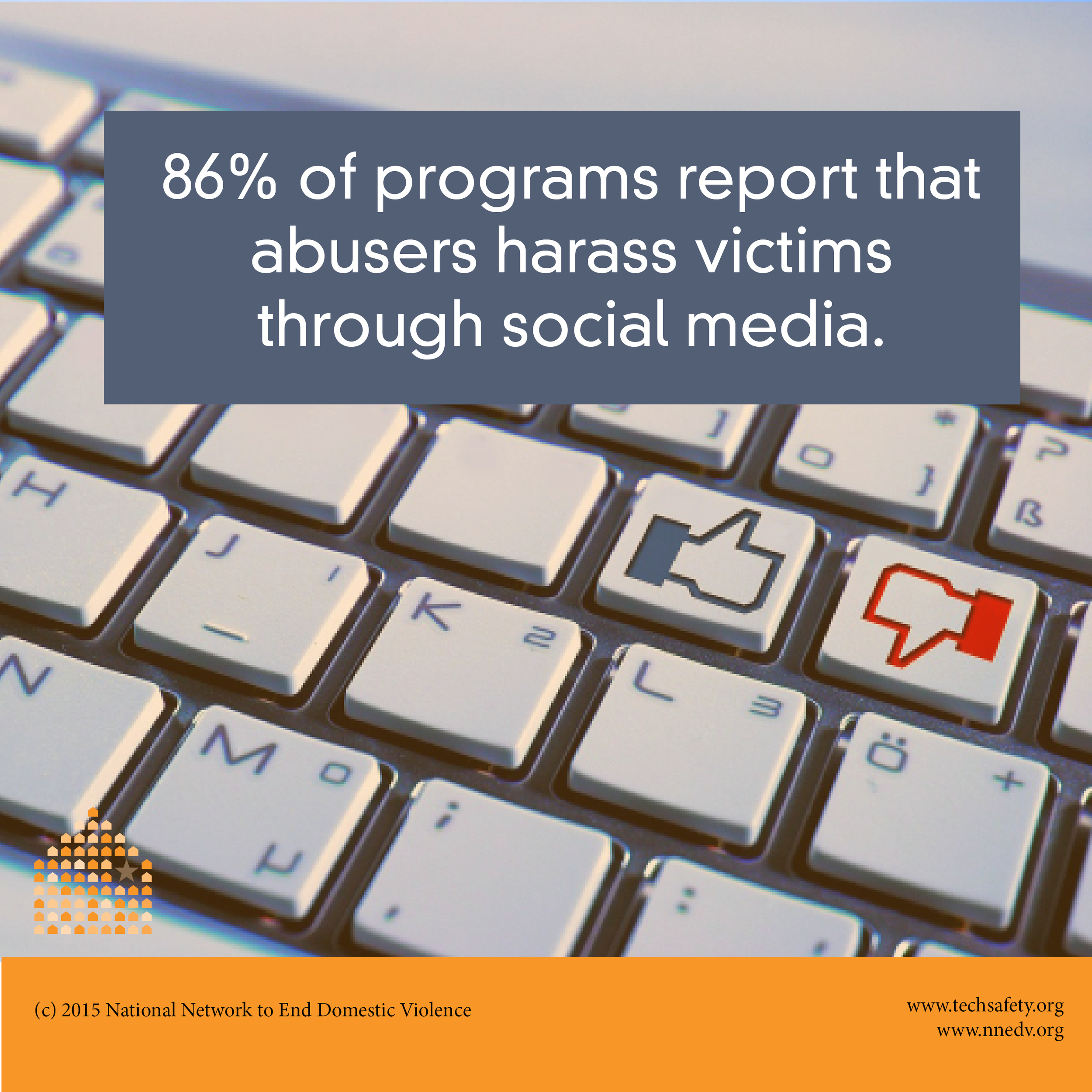The Safety Net Project recently surveyed victim service providers on the misuse of technology by abusers. Of the programs surveyed, 97 percent reported that the survivors they are working with experience harassment, monitoring, and threats by abusers through the misuse of technology.
Abusers in intimate partner violence misuse technology in many ways: to stalk and monitor victims, to harass victims through the “anonymity” of the technology, and to impersonate victims through technology, such as creating false social media accounts. The survey found that 79 percent of programs reported that abusers monitor survivors’ social media accounts, 74 percent report that abusers check victims by text messages, and 71 percent report that abusers scrutinize survivors’ computer activities.
Using technology to facilitate harassment of the victim is a major tactic by abusers, according to the reporting programs. Abusers harassing survivors via text messaging was reported by 96 percent of programs, while 86 percent reported that abusers harass victims through social media.
Of the type of technology misused by offenders, social media, text messaging, and email were the top three. It is not unusual that these three technologies should be reported the most abused by offenders. Abusers seek to disrupt and interrupt survivors’ lives. Stalkers gather information and monitor victims’ activities based on where they are and what they are doing. According to Pew Research Internet Project, 74 percent of adults who are online use a social networking site of some kind and 81 percent of adult cell phone owners send and receive text messages.
In fact, nearly all (99%) the responding programs reported that Facebook is the most misused social media platform by abusers. This finding is not shocking. Facebook is a platform in which abusers and survivors both engage in. With over 1.2 billion monthly active users, Facebook is a key place for offenders to access information about victims or harass the victim by directly messaging the victim or the victim’s friends and family. An advocate wrote: “Facebook is the hardest for survivors to shut down or avoid because they use it to keep in contact with other friends and family.”
Respondents to the survey also stated how difficult it is to “prove” that an abuser is behind the abuse. “Officers and state attorneys are saying that anyone could have posted those comments and pictures on Facebook, so proving in court that the abuser is doing it is very difficult,” noted one advocate. Advocates and survivors find it frustrating when they are told that it is impossible to trace harassing text messages or emails back to the perpetrator.
”A Glimpse From the Field” was conducted by the National Network to End Domestic Violence and funded under a grant awarded by the Office for Victims of Crime, Office of Justice Programs, U.S. Department of Justice.
Click here for a copy of the report.

